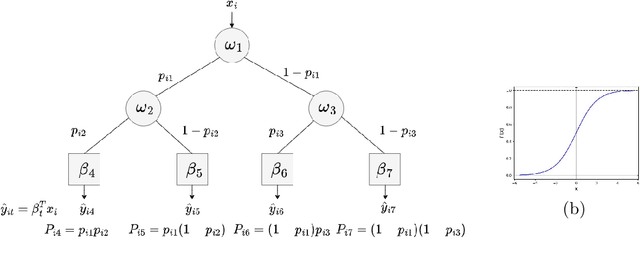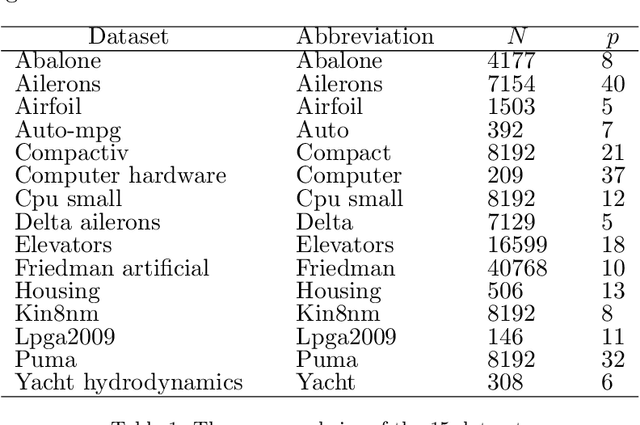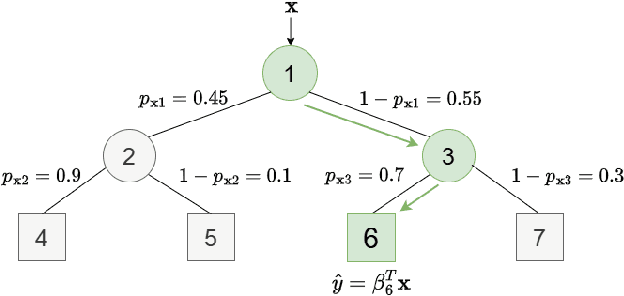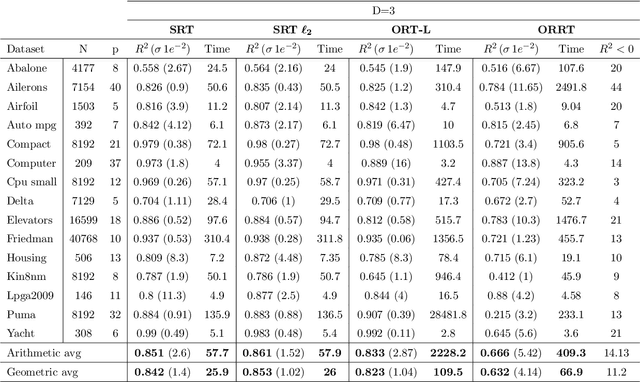Edoardo Amaldi
Binary Kernel Logistic Regression: a sparsity-inducing formulation and a convergent decomposition training algorithm
Dec 22, 2025Abstract:Kernel logistic regression (KLR) is a widely used supervised learning method for binary and multi-class classification, which provides estimates of the conditional probabilities of class membership for the data points. Unlike other kernel methods such as Support Vector Machines (SVMs), KLRs are generally not sparse. Previous attempts to deal with sparsity in KLR include a heuristic method referred to as the Import Vector Machine (IVM) and ad hoc regularizations such as the $\ell_{1/2}$-based one. Achieving a good trade-off between prediction accuracy and sparsity is still a challenging issue with a potential significant impact from the application point of view. In this work, we revisit binary KLR and propose an extension of the training formulation proposed by Keerthi et al., which is able to induce sparsity in the trained model, while maintaining good testing accuracy. To efficiently solve the dual of this formulation, we devise a decomposition algorithm of Sequential Minimal Optimization type which exploits second-order information, and for which we establish global convergence. Numerical experiments conducted on 12 datasets from the literature show that the proposed binary KLR approach achieves a competitive trade-off between accuracy and sparsity with respect to IVM, $\ell_{1/2}$-based regularization for KLR, and SVM while retaining the advantages of providing informative estimates of the class membership probabilities.
Soft regression trees: a model variant and a decomposition training algorithm
Jan 10, 2025



Abstract:Decision trees are widely used for classification and regression tasks in a variety of application fields due to their interpretability and good accuracy. During the past decade, growing attention has been devoted to globally optimized decision trees with deterministic or soft splitting rules at branch nodes, which are trained by optimizing the error function over all the tree parameters. In this work, we propose a new variant of soft multivariate regression trees (SRTs) where, for every input vector, the prediction is defined as the linear regression associated to a single leaf node, namely, the leaf node obtained by routing the input vector from the root along the branches with higher probability. SRTs exhibit the conditional computational property, i.e., each prediction depends on a small number of nodes (parameters), and our nonlinear optimization formulation for training them is amenable to decomposition. After showing a universal approximation result for SRTs, we present a decomposition training algorithm including a clustering-based initialization procedure and a heuristic for reassigning the input vectors along the tree. Under mild assumptions, we establish asymptotic convergence guarantees. Experiments on 15 wellknown datasets indicate that our SRTs and decomposition algorithm yield higher accuracy and robustness compared with traditional soft regression trees trained using the nonlinear optimization formulation of Blanquero et al., and a significant reduction in training times as well as a slightly better average accuracy compared with the mixed-integer optimization approach of Bertsimas and Dunn. We also report a comparison with the Random Forest ensemble method.
On multivariate randomized classification trees: $l_0$-based sparsity, VC~dimension and decomposition methods
Dec 15, 2021



Abstract:Decision trees are widely-used classification and regression models because of their interpretability and good accuracy. Classical methods such as CART are based on greedy approaches but a growing attention has recently been devoted to optimal decision trees. We investigate the nonlinear continuous optimization formulation proposed in Blanquero et al. (EJOR, vol. 284, 2020; COR, vol. 132, 2021) for (sparse) optimal randomized classification trees. Sparsity is important not only for feature selection but also to improve interpretability. We first consider alternative methods to sparsify such trees based on concave approximations of the $l_{0}$ ``norm". Promising results are obtained on 24 datasets in comparison with $l_1$ and $l_{\infty}$ regularizations. Then, we derive bounds on the VC dimension of multivariate randomized classification trees. Finally, since training is computationally challenging for large datasets, we propose a general decomposition scheme and an efficient version of it. Experiments on larger datasets show that the proposed decomposition method is able to significantly reduce the training times without compromising the accuracy.
ANDREAS: Artificial intelligence traiNing scheDuler foR accElerAted resource clusterS
May 11, 2021



Abstract:Artificial Intelligence (AI) and Deep Learning (DL) algorithms are currently applied to a wide range of products and solutions. DL training jobs are highly resource demanding and they experience great benefits when exploiting AI accelerators (e.g., GPUs). However, the effective management of GPU-powered clusters comes with great challenges. Among these, efficient scheduling and resource allocation solutions are crucial to maximize performance and minimize Data Centers operational costs. In this paper we propose ANDREAS, an advanced scheduling solution that tackles these problems jointly, aiming at optimizing DL training runtime workloads and their energy consumption in accelerated clusters. Experiments based on simulation demostrate that we can achieve a cost reduction between 30 and 62% on average with respect to first-principle methods while the validation on a real cluster shows a worst case deviation below 13% between actual and predicted costs, proving the effectiveness of ANDREAS solution in practical scenarios.
 Add to Chrome
Add to Chrome Add to Firefox
Add to Firefox Add to Edge
Add to Edge